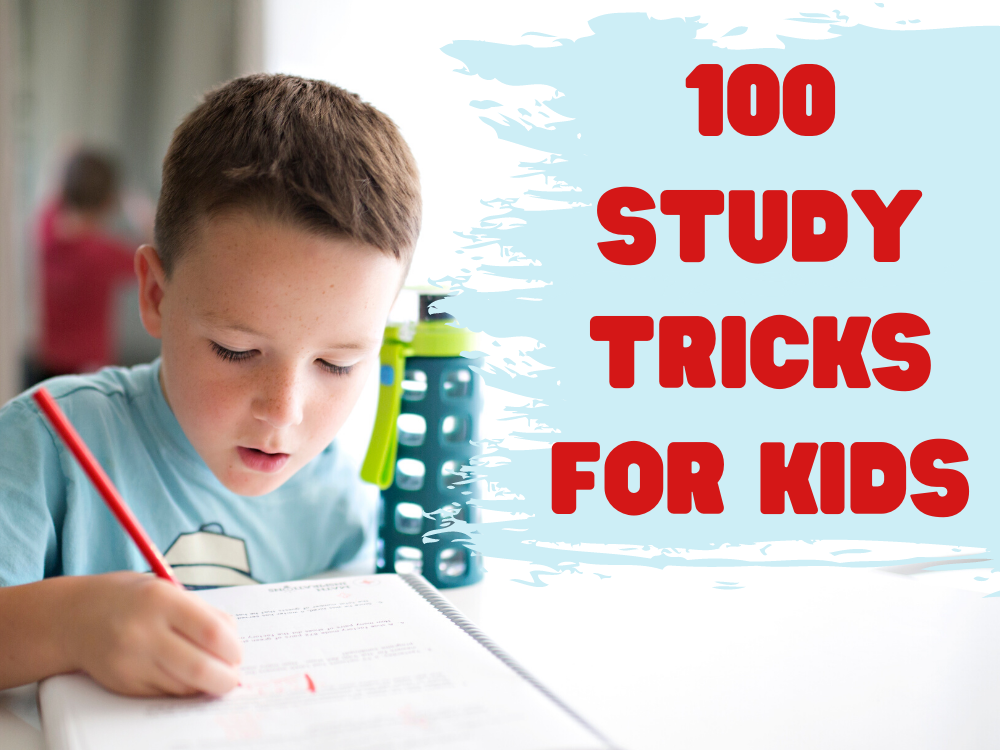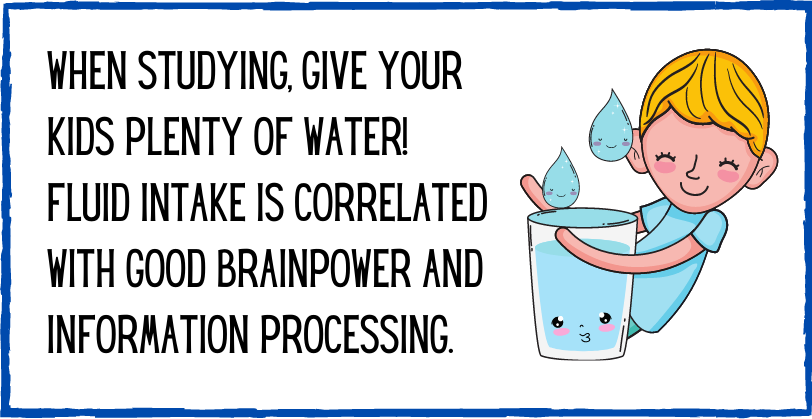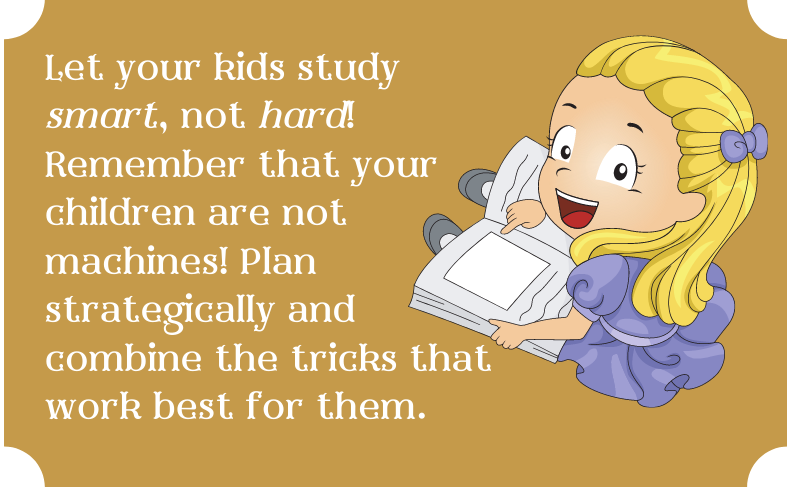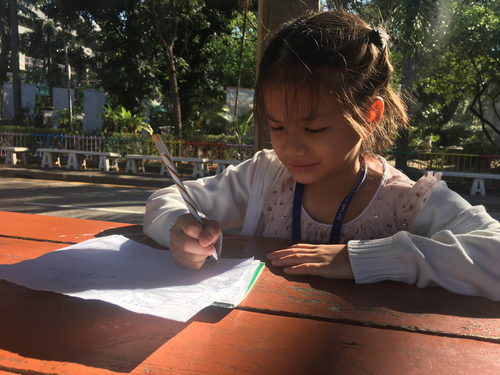
Study skills are essential for kids. As they grow up and advance in school, studying gets harder by the year! From information overload, tight schedules, and lots of homework, kids face challenges that make studying impossible! What you, as parents, do can make or break their academic performance.
Teachers can provide them with learning tips and methods to absorb information and retain knowledge. However, the majority of children spend their time studying at home. As parents and guardians, adults play an essential role in their education! There are a lot of studying tips and tools we can use to help these young minds excel in school because of excellent studying habits.
Below are 100 tricks, hints, and tips for kids to study effectively and will ultimately help them succeed academically!

1. Provide a dedicated and organized study space. This central area must be easily accessible for kids and away from external distractions. Doing this enhances their focus.
2. Set a routine. Set specific times for waking up, going to school, studying, break times, and even playing. Creating a daily schedule helps kids embrace the routines and become time-conscious.
3. Develop a daily to-do-list. If your kids feel overwhelmed, create a daily to-do list that is more task-specific. Set estimates like reading for 30 minutes, and making note cards for History in 20 minutes.
4. Every week, also create a to-do-list. Take out your whiteboard, and do a weekly overview to help your kids see the bigger picture of their daily achievements.
5. Highlight your routine and to-do list boards with colors. Make important tasks a priority by making it red. Use yellow when you want kids to work on it a little each day. Make it green for an average task to be completed each day.
6. Keep a “done” list. Let your children cross out the ones they finished for the day or week. This gives them a sense of accomplishment, and keeps them motivated.
7. Get a large dry erase board. Have your kid use this material to write exam dates, reports, homework projects, and school activities that are coming. Use this also to create reminders and organize their study timeline.
8. Pay attention to phonics. A study conducted by John Moores University in Liverpool revealed that preschoolers are better skilled in counting, calculating, and recognizing numbers if they spend more time learning the links between letters and sounds.
9. Sit with your kids while they study. While some kids get pressured if parents watch them study or work, sitting with them silently (perhaps while you’re reading a book or doing office work) can be the best motivation for kids.
10. Plan study goals together. Setting achievable short-term and long-term goals with your kid will make him stay motivated and can also track their progress.
11. Adopt your child’s learning style. Every kid learns effectively in different ways and knowing what kind of learner he or she is–whether visual, kinesthetic, or auditory–gives them a lot of advantages when studying.
12. Start assignments as early as possible. Procrastination is the number one enemy in studying, so allow your kids to work on their homework in the soonest time and not doing things at the last minute.
13. Make a memory tree for categorizing a lot of material. Draw big branches for significant topics and make a smaller branch for subtopics as differentiating and organizing information is very helpful in memory retention, mental processing, and understanding.
14. Use colored flashcards. Another way to break down information into smaller chunks, use colors to create different categories and start with the first 30 cards of 100 and eventually moving on to another color category once they mastered the given color group.
15. Ask school teachers for feedback. As they are with your kid almost half of the day, you can monitor their academic development, and if your study tricks at home are working for them.
16. Allow kids to draw a timeline for historical dates. To remember all the periods in History, allow them to put the significant events first and add the minor ones.
17. Make kids read information aloud and clear, repetitively. Even if they are not paying attention to their reading speed, reading loudly, clearly, and repetitively helps them retain information.
18. Play classical music in the background. Especially if there’s something that is taking away your kid’s attention, this type of music lets your kids concentrate on tasks, especially while studying according to one study.
19. Kids can also try listening to white noise. A study by the University of Chicago stated that, if classical music is not your kids’ cup of tea, play a moderate level of background noise (such as waterfalls, rain, and ocean waves) so they are more likely to think and be creative.
20. If there’s a new study schedule, make it a wallpaper on your kid’s phone. This way, they can see their timetable immediately!
21. Chewing gum helps kids concentrate longer. In one British study, it cited that that gum chewing can improve kid’s focus in visual memory tasks.
22. Provide study breaks in between. As kids have a short attention span, studying for continuous hours drains them and kills their productivity and performance.
23. Emphasize to stick with the given schedule. Following it may be hard but not impossible since it also helps them learn time management and be disciplined.
24. Prioritize the problematic subject first when studying. Comparatively, it is better to study hard topics first when they are starting fresh and not drained out, continuing to more easy ones later on.
25. Provide practice tests to your kids. After finishing a topic, do practice tests to make sure that they understand the basic concepts and are not just memorizing them.
26. Have a pocket folder for your child. Label them with “things to work on” and “completed” with all the assigned notes inside (i.e., worksheet assignments and page numbers), so your kids won’t miss anything!
27. Have a pocket calendar/organizer. From weekly to monthly overview, these are small and handy so that kids can keep them in their school bags!
28. Let them use colored highlighters in their study notes. Using different colors can give different meanings in their study notes like highlighting with neon green for further research, neon orange for essential notes that might come out in their exam, or yellow as something to inquire with their teachers!
29. Taking in index cards. A study trick used by successful generations, these aid kids in test-taking preparation and memorization by placing the word on one side and writing the definition on the other they come across new vocabularies, formulas or ideas in lectures and textbook readings throughout their school year!
30. Introduce mnemonics when they study. When kids have to digest a truckload of information, make up a phrase to signify the first letter of each word. Commonly, to remember the order of the planets, teachers and parents use the mnemonics My Very Excellent Mother Just Served Us Nachos to mean Mercury, Venus, Earth, Mars, Jupiter, Saturn, Uranus, and Neptune.
31. Don’t let them multitask. Keep the focus on one task at a time, as switching between tasks reduces studying efficiency.
32. Remember that intelligence is changeable and malleable. A study from the American Psychological Association stated that a person who believes he can get smarter makes him smarter so instill in your kids the right mindset by believing they are smart, first and foremost!
33. Making them well-rested with at least 8 hours of sleep at night. Sleep plays a crucial role in being an active learner in one research as it boosts memory and improves academic performance!
34. Teach the consequences of failing. Telling them that they’ll go to summer classes if they fail in school! Doing this will make them concentrate on the act of studying rather than the act of uncomfortable failing consequences.
35. Get rid of their distractions. During designated study times, put away gaming consoles, turn off the TV and block certain websites, so they stay focused on the tasks.
36. Make learning fun! If your kid is struggling with vocabulary, play scrabble with him, and if he has a hard time in basic mathematics, let him count the stairs when going up and down or bring him to the grocery count the fruits you’ll buy!
37. Encourage your child always to sit up straight. Additionally, let them also pull their shoulders back and lift their chin while studying as good posture enhances memory, learning and improves their mood, especially when studying.
38. Give healthy foods. Better nutrition makes the brain function effectively in one research, and this leads to a better performance in school, so even in break times, serving them fruit shakes and other nutritious snacks!
39. Allow your child to make summary notes. Each chapter of the topic learned these handfuls of keypoints would make it easier for them to consolidate learning.
40. Don’t give all your attention to kid’s grades only. Even if grades serve as feedback, always ask your kids if they are happy and satisfied with their results. Find out if you may need to adjust their studying habits to make studying more comfortable for them.
41. Take down notes using your hand and not computer. Research indicates that kids are less likely to understand the concept of a computer is used when taking notes compared when taken by hand.
42. Make your kids “teach” what they learned. Another way to understand the topic, especially for school-kids, is for them to pretend as teachers and teach them to a class of stuffed animals while you watch them over.
43. When reading, use a pen or your finger as a guide. Kids will, later on, enhance their studying efficiency and concentration from the combined physical action and act of reading.
44. Inform them to take notes in every class. This helps remember the information more, as one study states that 40% of new information learned is forgotten within a day.
45. Suggest to them that they should sit at the front of their class. If you want them to stay focus, a study said that those who sit in front usually get better grades!
46. Don’t let your kids study with TV or videos playing in the background. These will shift their focus to external stimuli, so always provide a non-stimulating environment!
47. Review and recall what was learned. At the end of each day, spend at least 30 minutes to recall what they had learned, and they can also take more time in concepts that they find confusing.
48. Ask your kids to explain the concept to you. If they can’t explain it, they probably haven’t grasped a better understanding and mastery of the topic yet.
49. Cultivate their habit of reading as a past time. Doing this sparks your kid’s imagination and piques their curiosity. It also builds their vocabulary and strengthens the brain, which is beneficial in studying!
50. Use a stopwatch. A stopwatch makes sure kids stay on top of their to-do-lists and avoid turning their 15-minute break into an hour!

51. Look for other references. While schools typically suggest looking at textbooks, get your kids to go beyond those—especially if your kid doesn’t understand the topic or subject explained by one reference material.
52. Promote open communication and positive daily conversation. US researchers examined 66,000 students in 2011-2012 and found out in their study that those with children who grew up witnessing parental problems (i.e., divorce and all forms of abuse) have decreased school performance and engagement.
53. Make studying interactive. Aside from audio guides and video lectures, there are many interactive educational applications and softwares available online for almost any subjects!
54. Take note of your child’s developmental level when setting time frames and accomplishing tasks. First graders can focus only on about 15 minutes in one task while high school can last for more than an hour!
55. Rewrite notes, when necessary. It takes time, but it can be a great source and reviewer of a subject matter if your child can write with speed and organization.
56. Watch out for signs of burn-out and frustration. Studying and absorption of information will be useful if your kid is not upset, angry, or not in the mood, so always take the time to ask what’s bothering them.
57. Empower them with goals. Make sure that kids understand where studying will lead them in the future, like going to a prestigious state university or having good grades to qualify to be a doctor, teacher, or even a scientist someday!
58. Make use of images and sounds. One mental way to retain all the information is using the visualization and association technique to help kids with ideas and concepts they find hard to remember.
59. Try to give them a nap first before diving straight into homework. Research from the University of Pennsylvania found a correlation between afternoon nap and your kid’s happiness, as well as better academic performance and improved behavior.
60. Engage your kid to relate less “fun” subjects to their favorite ones. For example, if your kid likes History but hates math, tell stories about world-renowned mathematicians adding some romance to the subjects.
61. Bring your kid to public spaces. Natural history museums, air-and-space museums, aquarium, and zoos are some of the places where it will stimulate their minds to study about these general facts when they go home.
62. Enroll in advance classes. If your kid loves science experiments, consider a STEM program to enhance her knowledge and skills!
63. Encourage to study with friends. Some kids learn well when being in a group, so consider this, and aside from getting good grades, they can gain more friends too!
64. Identify how they learn best. Understand what keeps them engaged and productive when studying, such as if they like studying with background music for peace, with food at their side or none, and if they like sitting at a desk or sofa.
65. Consider a private tutor. Take this opportunity if you have extra in your budget or utilize peer-to-peer-mentoring programs provided by some schools where students teach other kids.
66. Check their homework when they are done. You can look over their math computations, read over their writing assignments, and check their answers but assure them it is positive guidance and not to demean them.
67. Provide a comfortable chair and good lighting. To study effectively is to be comfortable first and foremost, so make sure it’s near the window for natural light, and the chair is at the right height for the desk.
68. Use funny accents when reading. These weird voices give their mind a good registry of the substantial information they are trying to absorb.
69. Replace boring book characters with those from video games, cartoon characters, and TV shows. Renaming them from famous genres makes the learning material more engaging and remembering.
70. Eat alphabet cereals when studying for a spelling bee. Let your kids spell -and eat- each letter of the word when you read to them a word on your list.
71. Learn difficult spelling words by writing them out five or more times. Repetition will make them learn the words more quickly.
72. Study with siblings. Be sure to get the studying done by setting a timer to see who finishes first with their homework correctly.
73. Teach them in making mind maps. This is a great memory tool for kids as these graphical illustrations can be created by doodling your notes or making a web that connects and simplifies an overload of school information.
74. Get enough fresh air and sunlight. Having a well-ventilated room is crucial as poor oxygenation in the brain results in lesser function. Without sunlight, Vitamin D is known to cause depression, and you don’t want it to happen on the day before their exam!
75. Make use of visualization skills. Teach them to create a movie that portrays the concept they are trying to remember, play it many times in their head and pay particular attention to the details by using senses such as how it looks, smells, sounds, or feels.
76. Find a keyword if they feel distracted. To refocus in studying and whenever kids lose their concentration, use a keyword in a concept or article they are studying and start saying it repeatedly until their mind comes back to the topic at hand.
77. Use abbreviations. When taking down useful notes, these are helpful to quickly jot down words as long as they know how to spell it correctly when needed.
78. Working with paraphrasing. Not only it helps in making study notes quickly but also in understanding the concept they are studying.
79. Re-draw the pictures. Visual illustration, especially in a science class, can be confusing. School kids who re-draw the bodily systems or images in an anatomy subject will understand it better.
80. Create a vocabulary notebook. As kids encounter words every day, instruct them to write essential vocabulary in this particular notebook to use as a reference when using them in appropriate everyday conversations.
81. Offer them plenty of water. A study in the UK showed that fluid intake is correlated with good brainpower and information processing.
82. Practice simple relaxation techniques. A combination of functional breathing exercises and guided imagery boosts their cognitive performance.
83. Never study in the bedroom. From their soft pillows and mattress, this will be very inviting for kids to sleep and abort their study schedules!
84. Use the Pomodoro Technique. This can also be applicable for kids as they study for 25 minutes in length and separated by short intervals.
85. Audio-record their study revision notes. These are effective for auditory learners to retain information!
86. Talk to them about what they did in class every day. Asking your kids about their day in school and discussing their studies will keep them more attentive in class as they can identify their learning strengths and weaknesses!
87. Consistency plays a big part in having good grades. Impress upon your kids that consistency from the study routines is one of the factors for achieving good grades as it entails their determination, hard work, and drive to succeed!
88. Start studying for tests in advance. Cramming is not a good idea, so parents should give their kids more time to study for tests and final exams!
89. Let them hang around with friends with the same focus and motivation. Remember that peer involvement plays a significant role in a child’s performance at school- not just academically but socially and behaviorally!
90. Create tiny goals. As the objective is to get started, kids can start small goals by letting them read and summarize one page in a given time frame rather than feeling overwhelmed by the whole chapter.
91. Ask the right questions in your study notes. The “who, what, where, when, why, and how” approach is particularly helpful in taking History notes.
92. Participate actively in class. This will allow kids to engage in academic conversations and provide the teacher with feedback to check the extent of their understanding of a specific topic.
93. Submit additional essays in school. With more submission comes more practice to improve their writing and an opportunity for more teacher feedback.
94. Prepare for every subject. Kids can skim the textbook chapter or do recommended readings for the upcoming class.
95. Use earplugs or noise-cancellation headphones. This will create a noise-free zone and block out the sounds from a shouting sibling next door, traffic outside, or dogs barking.
96. Use a child’s energy productively. To enhance concentration, start tougher tasks (i.e., studying in harder subjects) during their high energy time, and as their energy levels go down, switch to lighter activities (i.e., making flashcards).
97. Set up a reward system. Motivate the little ones with study incentives. Cook their favorite meal if they solve all their math problems or allow them to watch TV for an hour if they finish a set of homework. Rewards make them focused and increases their energy level.
98. Tell them to ask questions freely. Answering your kid’s queries -without hesitation- eliminates their doubts, and widens their horizons.
99. But before helping them out, let your kids figure out first the answer to their questions. This will develop their reasoning skills, be more confident, and boost their interest in studying.
100. Finally, let kids study smart, not hard. Remember that your children are not machines! Plan strategically and combine the tricks that work best for them.

***
Every parent can get a trick or two—or twenty—from these tips! The road to success is built one step at a time—and so is your child’s academic success! Whatever tricks you use to help your kid study better, make sure it’s all about his or her welfare, learning style, success, and above all, happiness!








